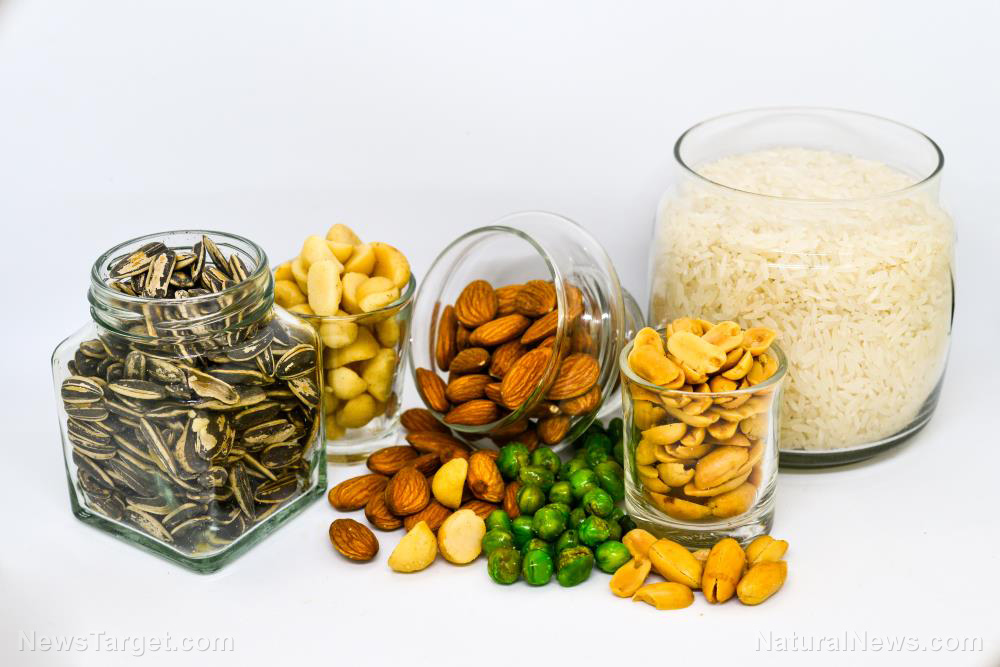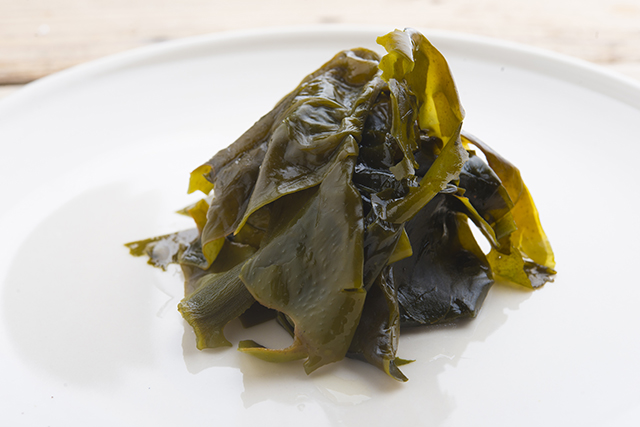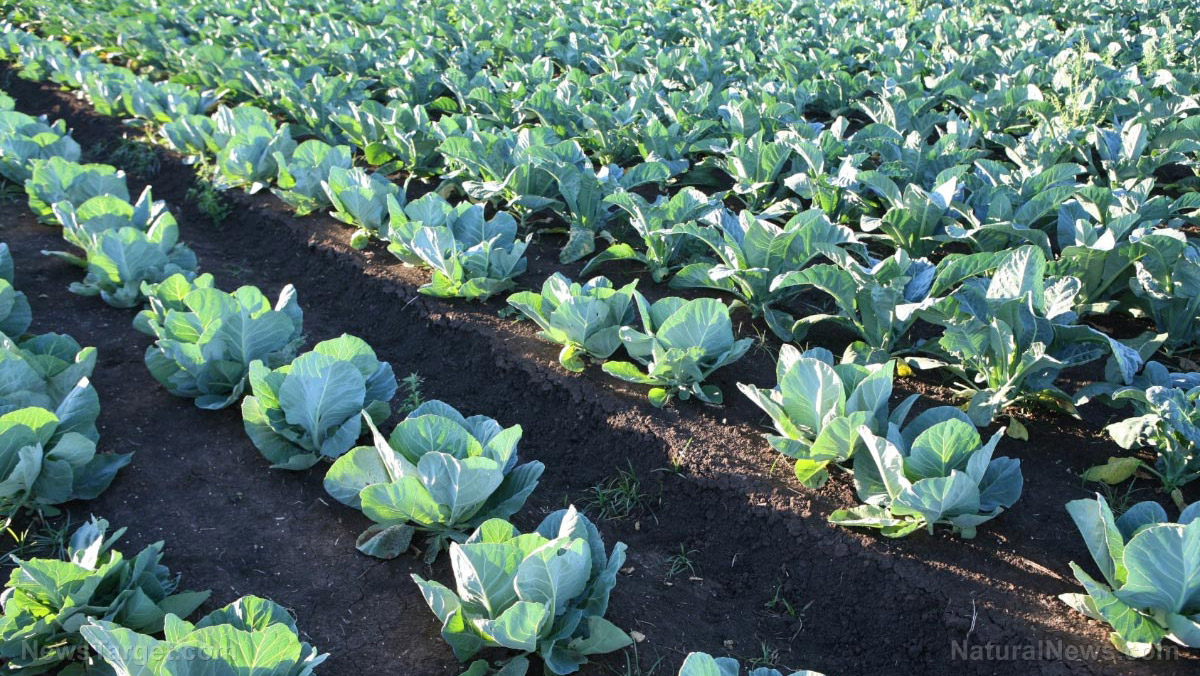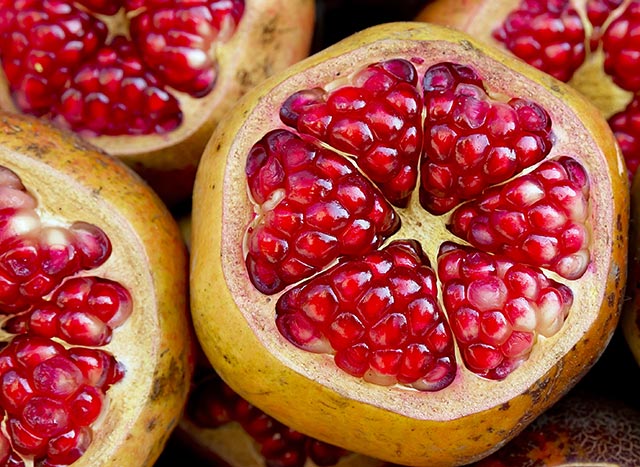Plant-based power: The science-backed health benefits of pine nuts
04/24/2023 / By Olivia Cook
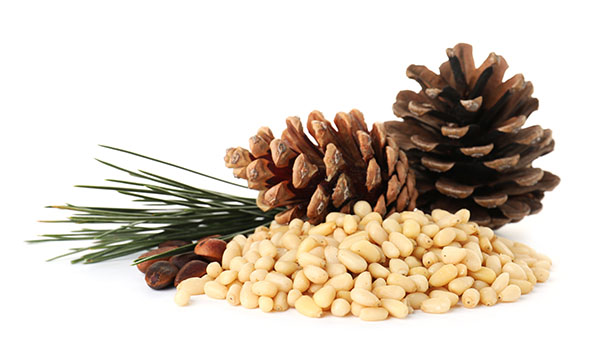
Although pine nuts are technically seeds, the Food and Drug Administration classifies pine nuts, also called pignoli, as a type of tree nut. The small, sweet teardrop-shaped nut comes with a hefty price tag due to the time and labor involved in its harvest.
There are 20 species of pine trees that produce pine seeds. Pines, like most conifers, may not produce edible pine nuts until they are 10 or 15 years old and significantly longer for production to reach its peak, according to Michigan State University.
Pine nuts, then need to be extracted as seeds and the second shells must be removed before they’re ready to eat. (Related: Did you know pine trees can be used as food, medicine and survival equipment?)
Here are eight health benefits of pine nuts, backed by science.
Pine nuts are nutrient-dense
The nutritional composition of pine seed that contributes to a balanced, nutritious diet includes:
- Vitamins – A (retinol), C (ascorbic acid), D, E (alpha-tocopherol), K and B vitamins B1 (thiamin), B2 (riboflavin), B3 (niacin), B5 (pantothenic acid), B6 (pyridoxine), B9 (folate), B12 (cobalamin)
- Minerals – calcium, copper, iron, magnesium, manganese, phosphorus, potassium, selenium, sodium and zinc
- Bioactive compounds – amino acids, choline, betaine, flavonoid and phenolic compounds, and others
According to the amino analysis reported in a scientific article published in the journal Interciencia, blue pine nuts contain significant concentrations of all essential amino acids: arginine histidine, isoleucine, leucine, lysine, methionine, phenylalanine, threonine, tryptophan and valine. In contrast, only arginine, aspartic acid, glutamic acid and methionine are found in the Korean pine nuts.
Pine nuts promote heart health
A study published in the journal Lipids that pinolenic acid, a polyunsaturated fatty acid isolated exclusively in pine nut oil, supports healthy cholesterol and even helps lower LDL, or bad cholesterol, levels in the blood – enhancing overall heart health.
Pine nuts also contain flavonoids, including catechin and epicatechin, that help decrease the incidence of atherosclerosis and coronary heart disease by promoting the relaxation of blood vessels and the free flow of blood.
The monounsaturated fats, vitamins E and K, magnesium and manganese in pine nuts form a synergistic blend to prevent cardiovascular disease.
The vitamin K in these seeds helps to form blood clots to prevent bleeding after injury while the vitamin E helps produce red blood cells, which are important for oxygen transport.
Pine nuts boost brain health and mental wellness
In the same way that pine nuts improve circulation for heart health, they also supply essential nutrients to the brain, helping to prevent issues like Alzheimer’s and Parkinson’s disease and age-related dementia.
Pine nuts are rich in nutrient antioxidants (vitamins A, C and E and minerals copper, selenium and zinc) that help reduce inflammation and oxidative stress. They also contain brain-boosting omega-3 fatty acids, which help slow cognitive decline and reduce the risk of dementia and depressive symptoms. Pine nuts also nourish you with iron, which stores and transports oxygen in the blood, keeping your brain healthy.
Pine nuts are a good source of mood-enhancing minerals, like magnesium, which stabilizes mood, improves sleep and calms the body. Magnesium helps decrease anxiety, depression and stress.
Research suggests taking two tablespoons of pine nuts per day (served with different dishes or used as toppings or just munching on these nuts) make it the real deal for treating magnesium deficiency.
Pine nuts reduce cancer risk
The cancer health benefit of pine nuts can be attributed to their magnesium content. This mineral has been linked to a lower risk of various types of cancer. A study published in the British Journal of Cancer showed that magnesium intake may be beneficial in terms of primary prevention of pancreatic cancer.
Findings showed that a decrease in serum magnesium of 100 milligrams per day can increase the risk of pancreatic cancer by 24 percent. Therefore, increasing your blood magnesium levels may help to lower such risk.
Pine nuts support healthy blood sugar levels by improving blood glucose control
Researchers in a study published in the Journal of Food Biochemistry believed that manganese, in addition to phenolic compounds and healthy fats found in pine nuts, reduce reactive oxygen species (ROS), which contributes to the activation of stress pathways in the body that result in the progression of diabetes.
Pine nuts are great for eye health
These nuts are full of vitamin A in the form of beta-carotene (an important eye vitamin) and lutein, which support sharp vision development. Lutein in pine nuts filters UV light. Since your body does not produce lutein on its own, it’s mainly derived from the food you eat. A dietary intake of lutein can significantly help with the prevention of eye diseases, such as macular degeneration and cataracts.
Pine nuts support bone health
Pine nuts provide double protection for bone health. They’re rich in both calcium and vitamin D, which build and strengthen bones. Pine nuts are one of only two tree nuts with an extraordinary level of vitamin K. If you’re curious about the other tree nut – it’s cashews.
A study published in the American Journal of Health-System Pharmacy: The Official Journal of the American Society of Health-System Pharmacists discussed how vitamin K helps in the treatment and prevention of osteoporosis. It not only increases bone mineral density, but also reduces fracture rates.
Pine nuts support sensible weight management goals
A study published in The FASEB (Federation of American Societies for Experimental Biology Journal indicated that previous experiments showed that polyunsaturated fatty acids (PUFAs), such as linoleic and oleic acids, derived from Korean pine nuts induced high amounts of cholecystokinin – one of the best-studied appetite suppressing hormones.
The study concluded that Korean pine nut PUFAs induced cholecystokinin and glucagon-like peptide 1 levels significantly for up to four hours. Appetite sensations were also affected – indicating that Korean nut PUFAs suppress appetite and affect food intake.
Glucagon-like peptide 1 enhances insulin secretion and inhibits glucagon release in a glucose-dependent manner, both in normal individuals as well as in patients with type-2 diabetes, according to a study published in the journal Reviews in Endocrine and Metabolic Disorders.
Watch the following video to learn more about the health benefits of pine nuts.
This video is from the Daily Videos channel on Brighteon.com.
More related stories:
Amazing health benefits of pine nuts.
Experts endorse nutrient-packed pine nuts for weight loss, healthy heart.
Lose weight and stay healthy with pine nuts.
Sources include:
Submit a correction >>
Tagged Under:
Amino Acids, antioxidants, bone health, brain health, cancer, edible seeds, eye health, flavonoids, food science, foodcures, heart health, improved cognition, mental wellness, natural remedies, nutrient dense, nutrients, pine nuts, plant-based power, prevention, research, vitamins and minerals
This article may contain statements that reflect the opinion of the author
RECENT NEWS & ARTICLES
COPYRIGHT © 2017 CANCER SOLUTIONS NEWS



